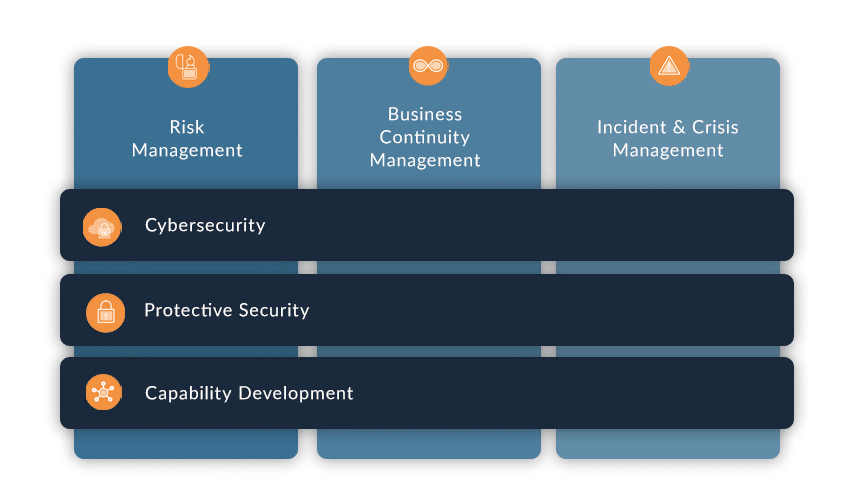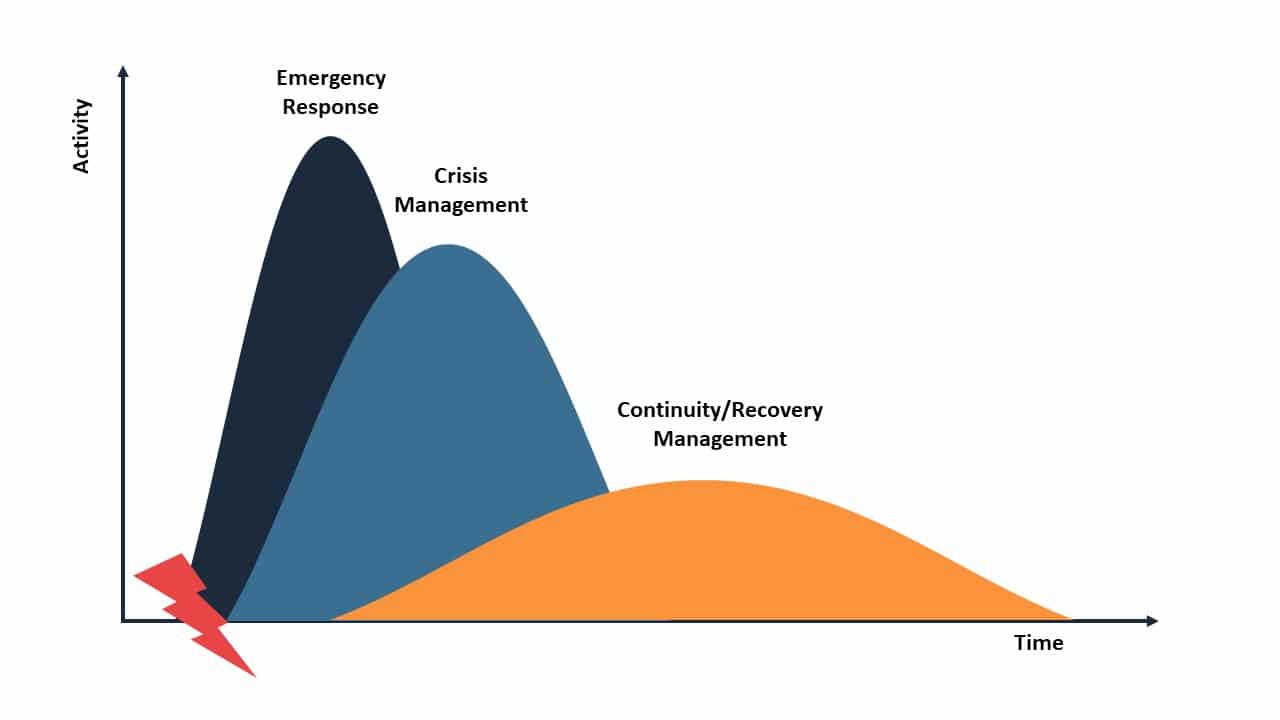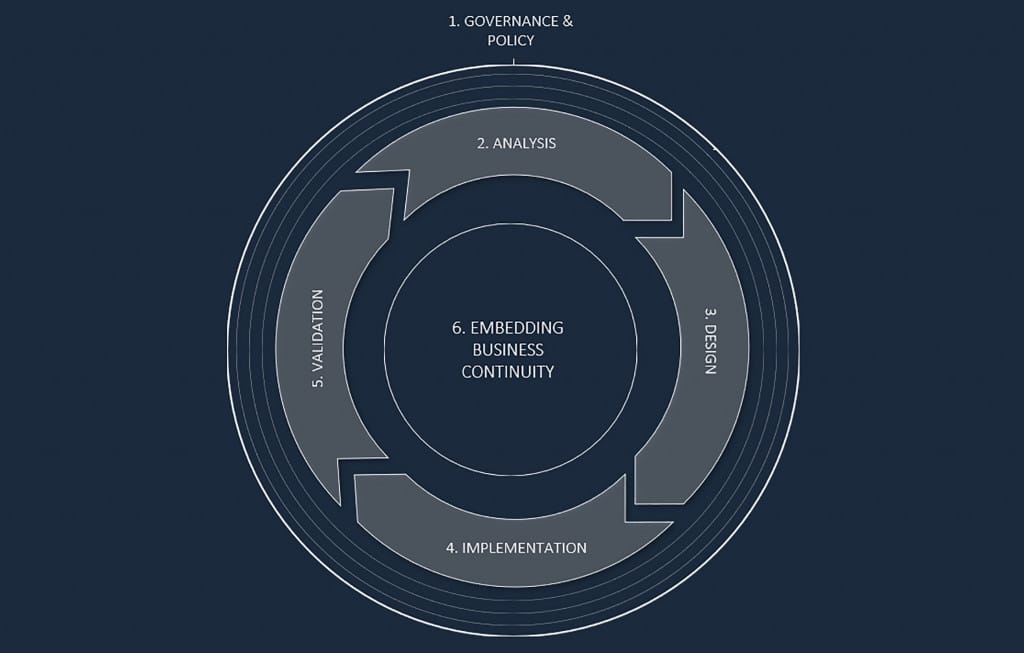Handling major disruptions – the need for effective BCM
Regardless of industry – public or private – all organisations can be subject to a major disruption at any time. Increased dependencies on IT and the security risks that come with it, as well as the growth in disinformation by antagonists, means the risks of incidents and major disruptions are greater and closer than ever before. Thus, building resilience is essential.
Major disruptions can be classed into the following categories:
- Supply chain disruptions
- Cyber-attacks and disinformation
- Natural disasters
- Loss of key data
- Loss of essential staff
- Large-scale workforce disruptions
- Major disruptions at facilities
- Political upheaval in key markets
Regardless of the disruption it’s important to follow the activity steps – as seen below – to manage the response. At each point it’s advisable to assess the organisation’s response before moving ahead.







